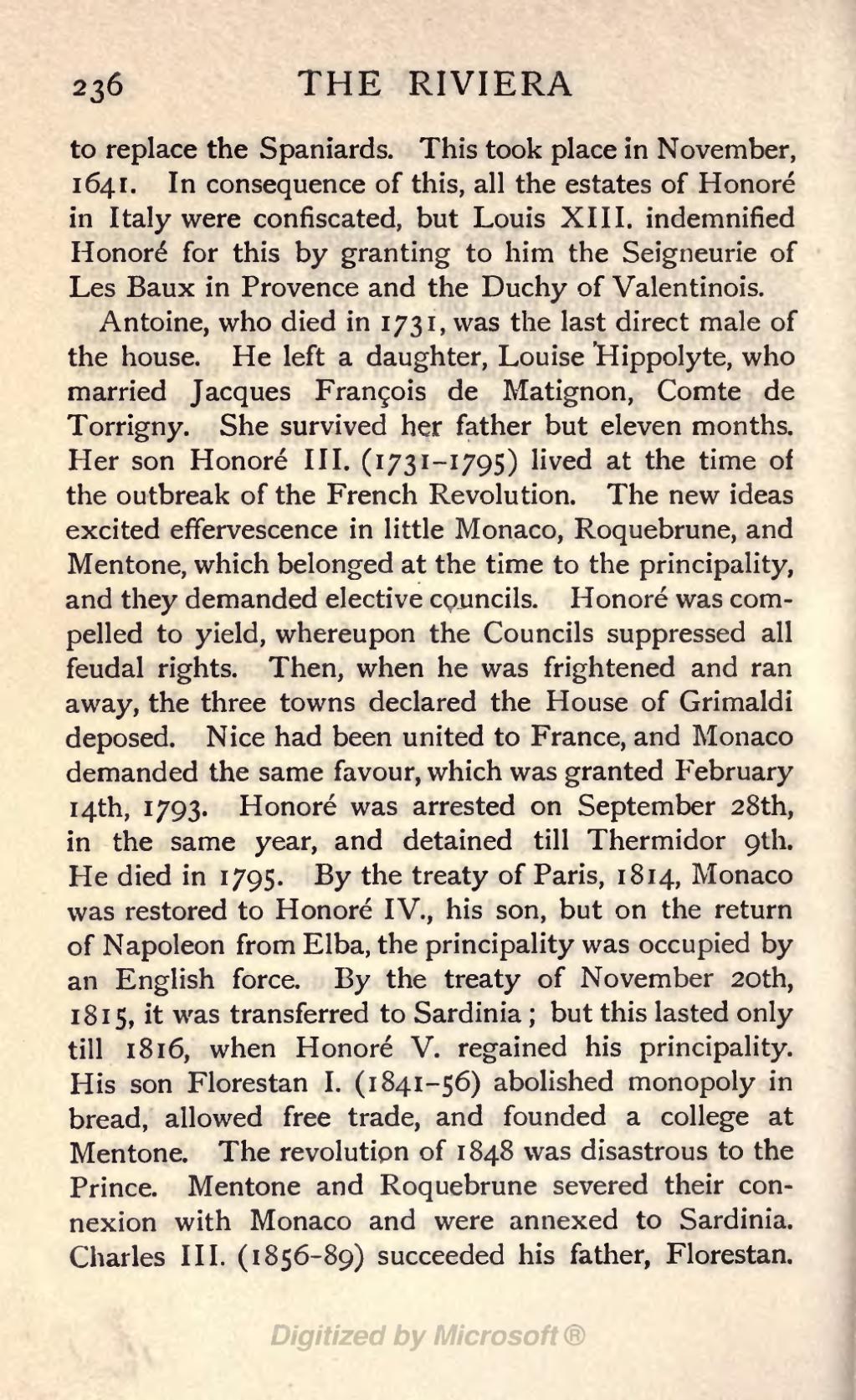to replace the Spaniards. This took place in November, 1641. In consequence of this, all the estates of Honoré in Italy were confiscated, but Louis XIII. indemnified Honoré for this by granting to him the Seigneurie of Les Baux in Provence and the Duchy of Valentinois.
Antoine, who died in 1731, was the last direct male of the house. He left a daughter, Louise Hippolyte, who married Jacques Frangois de Matignon, Comte de Torrigny. She survived her father but eleven months. Her son Honoré III. (1731-1795) lived at the time of the outbreak of the French Revolution. The new ideas excited effervescence in little Monaco, Roquebrune, and Mentone, which belonged at the time to the principality, and they demanded elective councils. Honoré was compelled to yield, whereupon the Councils suppressed all feudal rights. Then, when he was frightened and ran away, the three towns declared the House of Grimaldi deposed. Nice had been united to France, and Monaco demanded the same favour, which was granted February 14th, 1793. Honoré was arrested on September 28th, in the same year, and detained till Thermidor 9th. He died in 1795. By the treaty of Paris, 1814, Monaco was restored to Honoré IV., his son, but on the return of Napoleon from Elba, the principality was occupied by an English force. By the treaty of November 2Oth, 1815, it was transferred to Sardinia; but this lasted only till 1816, when Honoré V. regained his principality. His son Florestan I. (1841-56) abolished monopoly in bread, allowed free trade, and founded a college at Mentone. The revolution of 1848 was disastrous to the Prince. Mentone and Roquebrune severed their connexion with Monaco and were annexed to Sardinia. Charles III. (1856-89) succeeded his father, Florestan.
